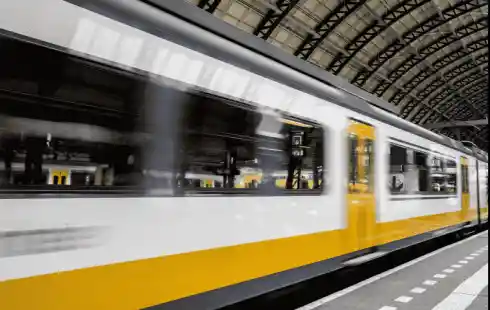
Oktoberfest in the news: How people around see beer's birthday
Section: Arts
 For an extended period, the Munich subway system has been grappling with operational challenges, primarily witnessed in the frequent utilization of shorter trains on the U1 and U7 lines. Service gaps across all lines contribute to prolonged wait times at platforms and overcrowded vehicles. The root cause of these issues lies in the Munich Transport Company (MVG) facing a shortage not only of train operators but also workshop personnel, hindering the timely repair and maintenance of subway cars.
For an extended period, the Munich subway system has been grappling with operational challenges, primarily witnessed in the frequent utilization of shorter trains on the U1 and U7 lines. Service gaps across all lines contribute to prolonged wait times at platforms and overcrowded vehicles. The root cause of these issues lies in the Munich Transport Company (MVG) facing a shortage not only of train operators but also workshop personnel, hindering the timely repair and maintenance of subway cars.
One contributing factor to the scarcity of available vehicles is the ongoing retrofitting of the aging B and C1 series trains with new fire protection systems. This process has encountered persistent problems and delays, raising concerns among dispatchers. The retrofitting effort, carried out by Siemens Mobility workshop for the B series and Railmaint for the C1 series, involves installing spray mist systems designed to contain smoke and combat fires. Unfortunately, the implementation has been marred by up to 150 defects in some vehicles, including issues related to drilling and wiring errors.
MVG spokesperson Maximilian Kaltner acknowledges claims for damages from system suppliers but refrains from disclosing specific details. He notes that, despite initial challenges, improvements have been made through extensive discussions and increased staff experience, with defects rectified at no additional cost to MVG.
Compounding the issue is the modern C2 trains, already equipped with the new fire protection technology, experiencing frequent false alarms. According to Kaltner, these alarms occur up to twice daily, particularly during winter, necessitating checks in the workshop. Each check incurs a substantial cost of around 1,500 euros, contributing to significant financial losses for MVG. Annually, disruptions in fire protection measures on the Munich subway result in expenses amounting to several hundred thousand euros, in addition to the general 40 million euros earmarked for fire protection upgrades.
Beyond vehicle-related challenges, the ongoing network upgrade since 2022 adds to the predicament. While MVG reports improvements, passengers are likely to experience continued disruptions in the subway network in the coming years. With over 50 years of operation, the network requires ongoing maintenance and upgrades, occasionally leading to closures and extended travel times.
Two major projects disrupting the timetable this year include ongoing work on the U2 line until mid-March, leading to weekend interruptions between the main station and Hohenzollernplatz. Another set of interruptions on the U6 is expected from mid-April to mid-June and mid-July to mid-September due to construction work, with a break during the summer for the European Football Championship.
Passengers relying on public transport are advised to stay well-informed in advance. Utilizing apps from the Munich Transport Association (MVV) or MVG can provide real-time updates on public transport schedules, disruptions, and interruptions, ensuring a smoother travel experience.
Image by Rudy and Peter Skitterians from Pixabay

Section: Arts

Section: Business

Section: Business

Section: Arts

Section: Health

Section: Arts

Section: News

Section: News

Section: Arts

Section: Business
Health Insurance in Germany is compulsory and sometimes complicated, not to mention expensive. As an expat, you are required to navigate this landscape within weeks of arriving, so check our FAQ on PKV. For our guide on resources and access to agents who can give you a competitive quote, try our PKV Cost comparison tool.
Germany is famous for its medical expertise and extensive number of hospitals and clinics. See this comprehensive directory of hospitals and clinics across the country, complete with links to their websites, addresses, contact info, and specializations/services.
One of the most beautiful squares transforms into a summer stage every year for two days. The Gärtnerplatz Open-Air features a free music and cultural program across three stages, as well as street food from local vendors. On Saturday, the main stage at Gärtnerplatz offers something for everyone,...



No comments yet. Be the first to comment!